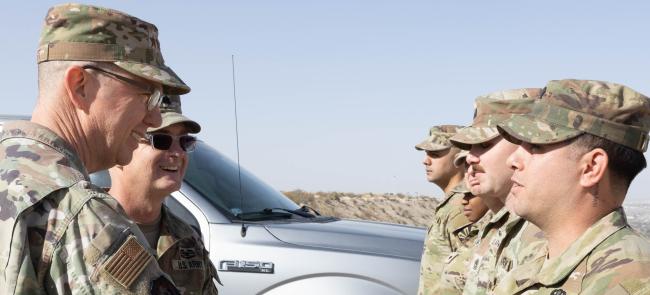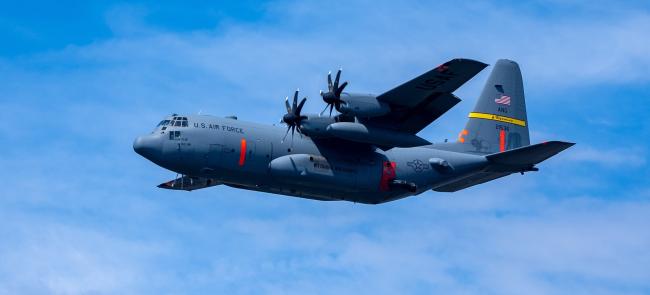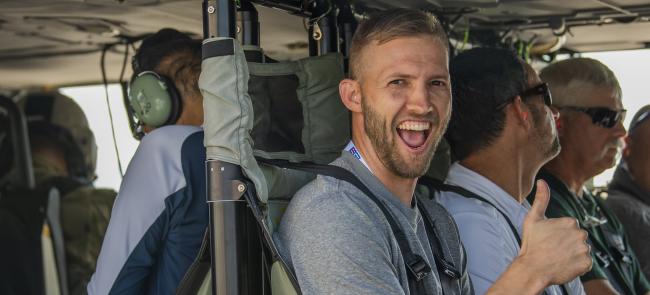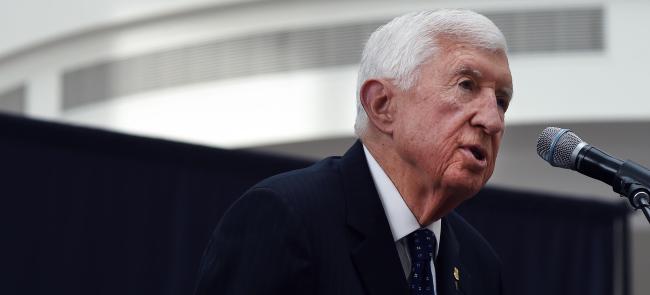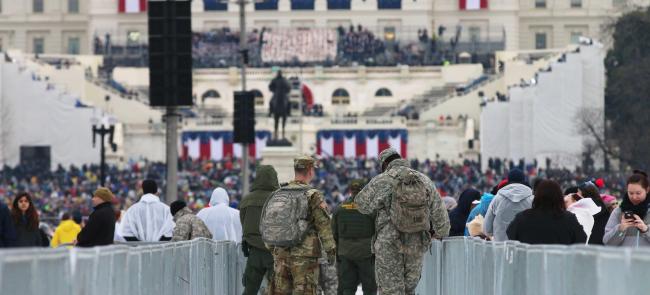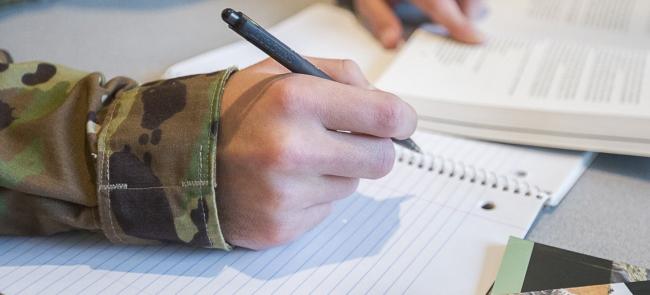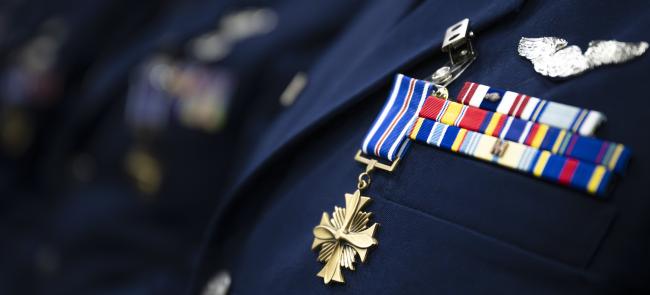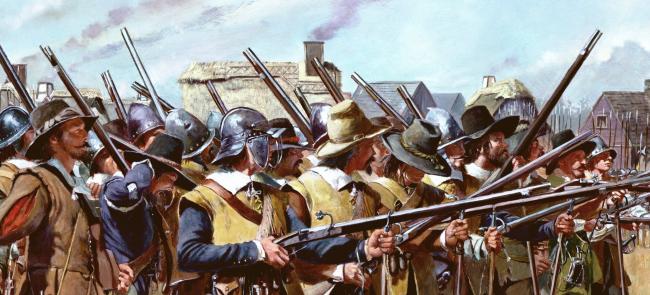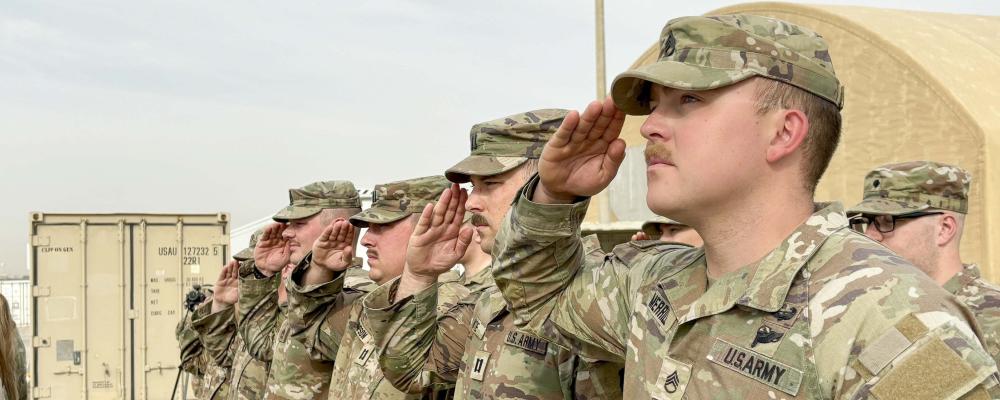
The National Guard will continue to provide security support for the Republican and Democratic National Conventions, a role unchanged by the assassination attempt on former President Donald Trump during a rally in Butler, Pennsylvania, Saturday.
The Wisconsin Guard will serve in an advisory role for the Republican convention in Milwaukee, while the Illinois Guard will serve in an advisory role for the Democratic convention in Chicago.
Deputy Pentagon Press Secretary Sabrina Singh said Monday there are no changes to the long-planned deployment of National Guardsmen and some active-duty personnel in support of the RNC.
About 1,700 National Guardsmen and a small number of active-duty personnel will support civil authorities during the convention.
"These personnel are supporting the FBI, U.S. Secret Service and Milwaukee metro police department for 24/7 operations," Singh said.
The Guardsmen are mainly from the Wisconsin, Minnesota and North Dakota National Guard and will provide capabilities such as civil support, explosive ordnance expertise and security. They will remain "postured to respond to other emergent domestic requirements to protect life, property and to maintain peace, order and public safety," Singh said.
Lt. Col. Maria Garcia said the Wisconsin Army Guard's soldiers are prepared to assist wherever needed. The RNC began Monday and runs through Thursday.
"Whether it be flooding, whether it be COVID-19 response, or the RNC, as long as we do the rehearsals and have an understanding of what our roles are, we’re able to support," Garcia said. "Our National Guard soldiers are very flexible."
Wisconsin Gov. Tony Evers issued a state of emergency in May ahead of the RNC.
Evers’ declaration allows for the Wisconsin Guard to be called "as the Adjutant General deems necessary to assist civil authorities for purposes of assisting in addressing the emergency as well as providing security and other essential services."
The Wisconsin Guard "may not be used to impede the ability of people to peacefully protest or impede the ability of the media to report on such protests."
Similar declarations were made for the RNC in Cleveland, Ohio, in 2016 and Tampa, Florida, in 2012, aligning with common practices to ensure public safety for events of high significance.
Minnesota Gov. Tim Walz also authorized the Minnesota Guard to provide public safety support for this year's RNC convention in Milwaukee. Walz's request for the Minnesota Guard's assistance came at the end of June.
The Guard routinely performs security support for major public events. The Guard usually deploys Weapons of Mass Destruction Civil Support Teams (WMD-CSTs) to advise local authorities about how to protect large gatherings of people.
"Each event and venue present their own unique security matters," said Lt. Col. Matthew Garrison, the chief of domestic operations for the Illinois Guard. "The National Guard is an augmenting force for any gaps identified."
Because each convention is seen as a National Special Security Event (NSSE), security is guided by a framework for intergovernmental collaboration. An event is designated as an NSSE by the president or the secretary of the Department of Homeland Security.
Governors can request a particular event be approved as a NSSE. Once that happens, the security planning ensues.
The Secret Service acts as the lead agency for event planning and security, while the FBI serves as the lead agency for crisis management (terrorist attacks) and FEMA works as the lead agency for consequence management (natural or human caused disasters).
Depending on the approval timeline for a requested NSSE, the local, county, territorial and state jurisdictions involved are all part of the planning efforts, which typically take six months to a year.
The ongoing nationwide protests related to the Israel-Hamas war have many Americans experiencing déjà vu about the 1968 DNC, which was also held in Chicago.
The 1968 protests concerned America’s involvement in the Vietnam War and the impending presidential nomination of Democratic vice presidential nominee Hubert Humphrey.
Following civil unrest in the streets, Chicago Mayor Richard J. Daley called in the Illinois Guard to restore and maintain order.
By the convention's end, more than 600 protesters had been arrested and hundreds of people had been injured.
— By Donald Lambert

